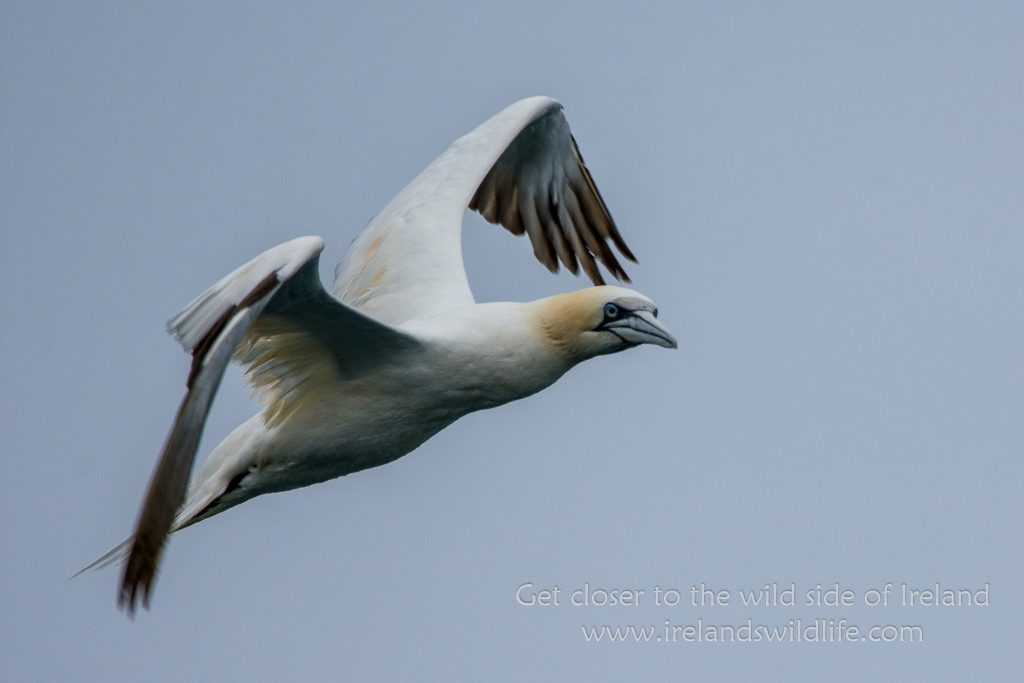[ad_1]
Extremely Pathogenic Avian Influenza (HPAI H5N1) has hit Irish seabird colonies this breeding season after operating rampant by means of comparable colonies within the UK earlier this yr. The illness, which may infect a variety of fowl species, seems to have hit breeding Gannet colonies notably exhausting.

Gannets, our larges seabird, nest in dense colonies on uninhabited offshore islands numbering tens of 1000’s of birds. Sadly these mass gatherings, with birds crammed in shut proximity, present a perfect atmosphere for transmission of a virus like H5N1 . There are three major gannet breeding colonies in Eire: a big colony on Nice Saltee off the Wexford coast, a a lot smaller colony on the Bull Rock off the Beara Peninsula in West Cork and one of many world’s largest Gannet colonies on Little Skellig, off County Kerry, which hosts virtually 30,000 pairs of this iconic seabird every summer time.
Seabirds, wildfowl (geese, geese and swans) and extra
Lifeless and dying Gannets are being reported from round Irish coasts this yr, together with another seabirds like Guillemots and Razorbills in smaller numbers. However it’s not simply seabirds which can be affected by H5N1 — any fowl that comes into contact with different contaminated birds may catch and carry the illness. Wildfowl (geese, geese and swans) and birds of prey are notably vulnerable, as are birds like corvids (the crow household) that might come into contact with the illness by means of scavenging contaminated carcasses.
Up to now there have been no reported circumstances in Eire referring to backyard birds, that are extremely unlikely to come back into direct contact with vectors of the illness. The danger posed by feeding your backyard birds is taken into account minimal.
Whereas H5N1 is predominantly an avian illness, and solely spreads simply by means of fowl populations, some mammals, together with people in very uncommon circumstances, could also be vulnerable to an infection.
What do you have to do for those who discover a sick fowl
Though the danger of the illness passing from a wild fowl to a human host is extraordinarily low, authorities advocate that most of the people keep away from all contact with sick or useless wild birds right now.
- DO NOT TOUCH sick or useless wild fowl
- DO NOT try to assist sick wild birds, deliver them house, or take them to an animal rescue centre
- DO NOT permit pets to strategy sick or useless wild birds. Preserve canine on a lead in areas the place useless or sick birds are current.
- DO report any useless or sick seabirds, wildfowl (geese, geese or swans), corvids (crows) and birds of prey by means of the Official Division of Agriculture internet portal here.
Alternatively, you may name the Division’s Avian Influenza hotline to report potential circumstances of the illness on 01 6072512 throughout workplace hours or 01 4928026 outdoors workplace hours.
Different Irish Avian Influenza Sources
Under you’ll discover hyperlinks to different Irish Avian Influenza assets on the internet — we’ll hold this listing up to date as we uncover related new hyperlinks:
- Avian Influenza replace from Birdwatch Eire
- Avian Influenza Public Discover from the Nationwide Parks and Wildlife Service
- Avian Influenza Public Security Info from the Division of Agriculture, Meals and the Marine
- Avian Influenza common info on Gov.ie
[ad_2]

